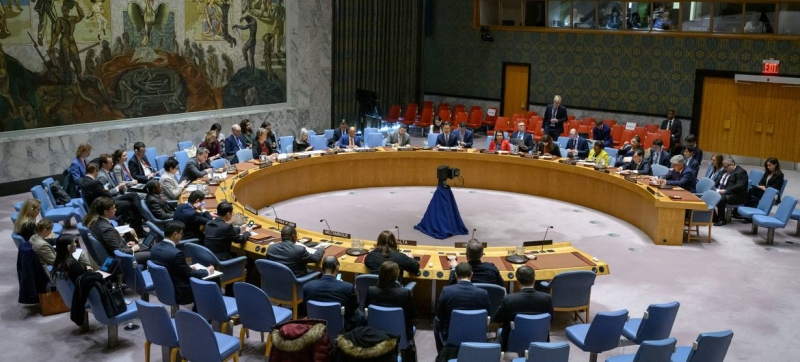
Security Council meeting on Ukraine. UN Security Council: UNICEF chief warns of catastrophic impact of war on children in Ukraine Peace and Security
Speaking to the UN Security Council on Wednesday, UNICEF Executive Director Catherine Russell drew attention to the devastating impact of war on children in Ukraine. In her speech, she called for immediate action to protect the most vulnerable victims of the conflict.
As the rapporteur noted, the war, which has been going on for more than 1,000 days, has caused irreparable damage. “The UN has confirmed that at least 2,406 children have been killed or injured since February 2022 – that’s an average of two children every day. This is only confirmed UN data – we know that the real numbers are much higher,” Russell said at a Security Council meeting.
Lost Childhood
The UNICEF chief also recalled that 3.6 million people who were forced to flee their homes remain in the country, while 6.7 million Ukrainians have become refugees abroad. According to her, families remaining in the country are forced to take shelter in basements, and children spend up to six hours a day in dampness and darkness to the sound of air raid sirens.
“In cities like Kharkiv, classrooms and playgrounds have been replaced by temporary underground schools, some of which are located in metro stations,” Russell said, highlighting the impact of the war on Ukraine’s education system.
Aftermath of the shelling
With the onset of winter, the situation is becoming even more difficult. Attacks on energy infrastructure have left many communities without power. “In some areas of Ukraine, power outages last up to 18 hours a day. As a result, many children are left without basic necessities, including heating, drinking water and sanitation,” Russell said.
She also drew attention to the psychological consequences of war, which have a long-term impact on children’s health.
Humanitarian Efforts
UNICEF is working to mitigate the impact of the crisis by providing access to clean water for 5.1 million people and psychosocial support to more than 630,000 children and their families. UNICEF is also working with local authorities to ensure heating throughout the winter and that schools operate safely. “In 2024, we supported access to education for more than 450,000 children,” Russell said.
“We are doing everything we can to protect children and ensure that they know how to protect themselves from mines and other explosive remnants of war, which have contaminated a quarter of the country,” she added.
Political Solution
However, she stressed that this is not enough. Russell called for strict adherence to international humanitarian law, an end to attacks on civilian infrastructure and the use of explosive weapons in populated areas, and a priority for reuniting separated families.
“All parties and all stakeholders must focus on solutions that are in the best interests of every child,” she said.
Russell stressed that no humanitarian measures can replace a political solution to end the war. “Children are counting on the [UN Security] Council and its actions. We cannot and must not fail them,” the UNICEF chief stressed, addressing the Security Council members.
